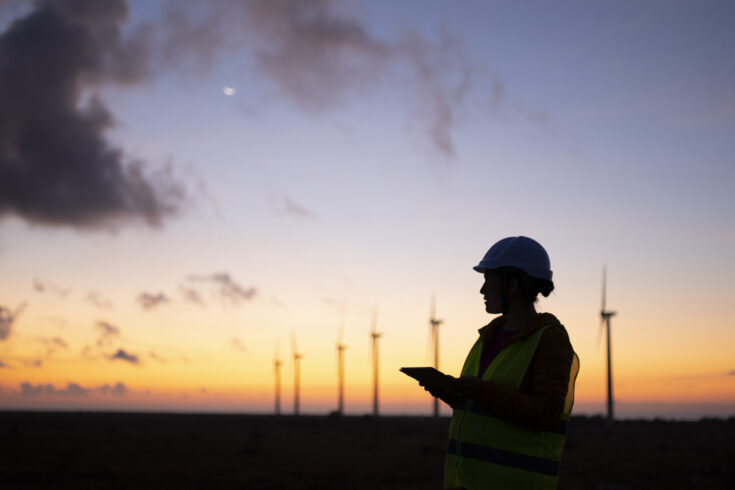For the last year my company, Cultivate, has been working with Leeds and Cardiff Universities to run a project called ‘Delivering Net Zero’, exploring how a range of stakeholders are responding to the challenge of net zero. This is work that has been funded by UK Research and Innovation to help them understand where they might focus on accelerating research towards deployment.
In this project we have taken the view that a whole systems approach to decarbonisation requires us to consider demand for energy and other resources alongside their supply. As well as how to remove greenhouse gases (GHG) from the atmosphere.
To do this, we have been talking to:
- communities of researchers in each of these areas
- policymakers
- those delivering the solutions in both the public and private sectors.
Reassuringly, everyone we have spoken to has recognised the urgency of the challenge, as well as the importance of cross-sector working.
Collectively contributing to net zero
We have heard a range of responses to the question ‘what is your sector’s contribution to net zero’.
If you ask the energy supply community what their contribution to net zero will be, they will ask you how big is the demand? If you pose the same question to the demand community, they will ask you what solutions are going to be available on what timescales. They will also warn you of the risks of assuming that people will behave in the future (with new technologies like electric vehicles and heat pumps) as they have in the past.
For the GHG removal community things are even more difficult and they will point out that they cannot be expected to just ‘mop up what’s left’. Many of the removal solutions being considered create complex interactions across both supply and demand of energy. Meanwhile, reforestation and other nature-based solutions have huge implications for farming and food production.
We have also heard perspectives from the technology optimists who believe that technical solutions can be found with limited need for individuals to behave differently. These contrast with the views of those who see a need for radical, systemic, socio-economic and political change if we are to achieve net zero.
Social and political feasibility
These viewpoints are reflected in the latest version of the National Grid Future Energy Scenarios. However, their ‘leading the way’ scenario, the one that gets to net zero soonest, is predicated on demand being reduced by 50% between now and 2050. This is a cut that many working in this area believe will only be possible with immediate, radical system changes.
The different perspectives of the various stakeholders we have been talking to reflect the range of views around the social and political feasibility of different solutions. However, there was general agreement around some things that we just need to get on with:
- where there are ‘ready to go’ low carbon infrastructures and technologies, these need to be rolled out, with urgent effort put into upskilling and capacity building. We clearly need to do this in private sector supply chains, but it is also needed in the public sector, particularly among policy makers and regulators at both a national and local level
- we need to continue to work at improving the commercial readiness of the solutions and infrastructure that will deliver the longer-term reductions. In some cases, these will be disruptive to the way we currently do things. This investment needs to occur at all stages of innovation. Investment in the full commercialisation and deployment of well-developed ideas is as important as ongoing early-stage research and development.
The role of research
The research community has an important role in making all this happen, and many are calling for this to be coupled with a more active and interventionist policy approach. Convincing policymakers of where and when they need to act is perhaps one of our biggest challenges.
The research community can provide important evidence for this, but we need to be very cautious of entering into a debate about the ‘right’ solutions for any of these problems. Indeed, whenever I hear someone talk about ‘right solutions’ I want to ask them, ‘right for who?’
There is, however, plenty of experience out there of getting things ‘wrong’. Decision makers need good evidence that meets their needs and helps them to make the best decisions they can. Part of that evidence needs to be about:
- where capability exists to manage the all too apparent risks
- providing confidence in where we can move forward because the skills and supply chain are in place to deliver at scale
- solving the ‘unknown unknowns’ that are undoubtedly out there.
This does require plans and targets, but it also requires fundamental systemic change at least as significant as the privatisation of nationalised industries in the late 1980’s and early 1990’s.
Social legitimacy
I believe that the whole of society needs to be engaged in achieving the UK’s vision for a decarbonised economy. Some stakeholders even talk about creating a ‘sense of social legitimacy for the need for change’. This requires an acute awareness of the political context in which the work we are all doing is being undertaken. Arguably, the technical solutions are the least of our problems.
New solutions are being established as various organisations seek to address society’s demand for energy in ways that have less impact on the environment. The ones that are successful will be those that are also reliable, affordable and engaging.
Top image: Credit: Daniel Balakov / Getty Images



